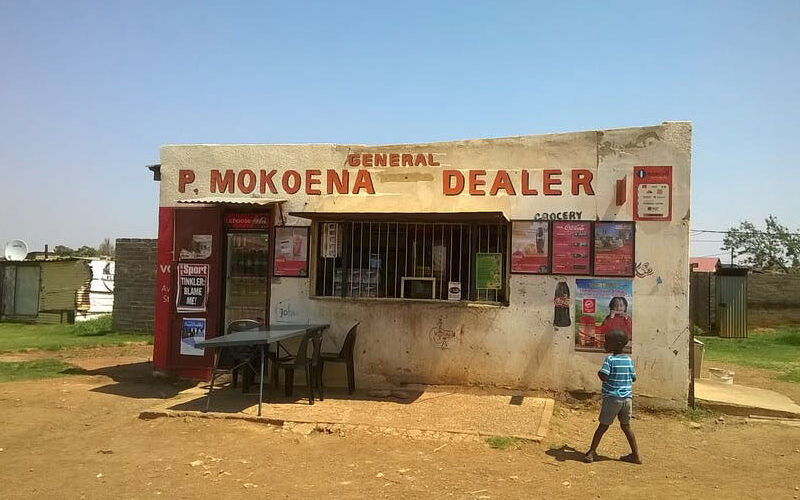SOUTH Africa is battling one of the highest unemployment rates worldwide. A concentrated number of unemployed people live in marginalised and under-resourced communities, where the estimated unemployment rate is 60%.

Entrepreneurship is proposed by a number of socioeconomic researchers working in the field of unemployment as one possible, but not a simple, panacea for the employment crisis. To start a successful business, a person needs, among others, finances, business acumen, an interest in entrepreneurship, a marketing strategy, a space ideal for attracting customers, and a steady customer base.
There are numerous other obstacles to starting an entrepreneurial venture without an income, far from the economic urban hub, and with inadequate access to facilities. Furthermore, potential clients in the community are mostly in a precarious financial situation, with limited buying power.
There are many studies of survivalist entrepreneurs. There is a gap, however, in the knowledge about isolated cases that have unexpectedly produced positive outcomes. These individuals outperform others in the same unfavourable situation by far. This phenomenon is known as ‘positive deviance’.
To fill this gap I interviewed four informal survivalist microenterprise entrepreneurs who perceive themselves as ‘temporary’ entrepreneurs. They engaged in entrepreneurial ventures while actively searching for secure formal employment.
The number of participants involved in my exploratory study is small. This was to enable me to arrive at an in-depth understanding of the lived experiences and the being of these entrepreneurs. It also enabled me to collect preliminary data on the entrepreneurs’ perceptions of the challenges and enablers at play in their businesses. Lastly, a small group made it possible to build a solid relationship and strong rapport with them.
Follow-up research will be done.
From the study, I concluded that these entrepreneurs could, ideally, point social scientists and policy makers to possible context-appropriate solutions to the huge unemployment challenge experienced in disadvantaged communities.
Positive deviants
The exploratory study arose from research on the experiences of unemployed individuals in two South African settlements. The research provided preliminary data for use in developing a programme for unemployed people in Orange Farm, which is 45km from the city of Johannesburg, and Boipatong, which is 60km away.
During the research, it emerged that some of the unemployed job-seekers were engaged in small survivalist businesses. They did this while looking for secure and more stable employment. These small business owners were securing an income amid a sea of challenges. There were numerous small businesses identified in Orange Farm and Boipatong. Few of these were owned by South African-born people.
These entrepreneurs decried an operating environment that is not conducive to running a business. For example, they said there was no government support for small businesses. Participants identified a lack of funds and basic business and marketing know-how and skills as crucial handicaps in running and growing their businesses. Each entrepreneur had to learn through experience. They had no mentors and role models. This is because successful entrepreneurs and business people generally left the area as soon as they became affluent.
The entrepreneurs were determined to overcome individual, social and structural challenges to earn a basic income for their families. Their income was meagre but they voiced a need for independence from financial assistance by others.
The dearth of South African-born entrepreneurs in Orange Farm and Boipatong underlined the scarcity of South Africans making a living through survivalist entrepreneurship in townships. They are indeed highly unusual.
From the interviews with four survivalist entrepreneurs, nine characteristics highlighting their unusual nature were identified:
- They strongly believed that being a provider was part of being a responsible adult.
- An honest and ethical value system guided their steadfast view that the only way to acquire money was through respectable, truthful, hard work. They denounced crime and passive waiting for disbursements of welfare funds or donations.
- They held the opinion that diligence, dedication, commitment and perseverance were needed to ensure success in life. One interviewee asserted: ‘Hard, honest work. That’s how I was raised, that’s what I’ve learnt and that’s what I’m sticking with. I work 13 hours a day. I work Monday to Sunday.’
- These positive deviants expressed an unconditional need for self-sufficiency, autonomy and independence. One participant strikingly declared: ‘I don’t like being a beggar. I am used to looking after myself.’
- Participants saw engagement in meaningful, purposeful endeavours as essential. Idleness and passivity were unacceptable.
- The narratives of all four survivalist entrepreneurs contained evidence of their altruistic character. All indicated that they reached out to community members and that they endeavoured to somehow serve their communities.
- A striking attribute was perseverance despite setbacks, laborious efforts and the uncertainty of informal entrepreneurship. When one endeavour failed (which happened to all at some point), they rebounded and started anew.
- In the interviews, they used positive words such as ‘hope’, ‘inspiration’, ‘winning’ and ‘motivation’. Their accounts of daily experiences in their small businesses clearly exhibited their positivity.
- Three of the four entrepreneurs disclosed their firm belief in the protection and enablement of the divine powers of God and the ancestors, which allowed their small businesses to be successful.
These characteristics appeared to enable the informal, survivalist entrepreneur to employ extraordinary and unconventional strategies and behaviour to start and endure in a non-conducive environment.
Social scientists and policy makers could learn from and tap into their outlook on life as exemplar survivalist micro-entrepreneurs. This could lead to context-appropriate soft-skill programmes and solutions that are currently feasible because someone is already employing them in that context. – The Conversation.














